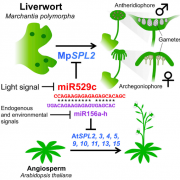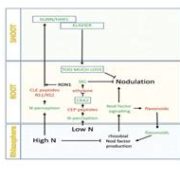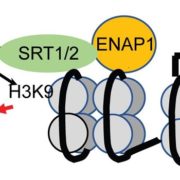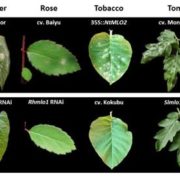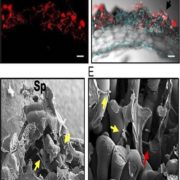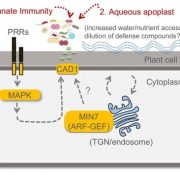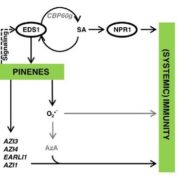Resistance to Wheat Stripe Rust
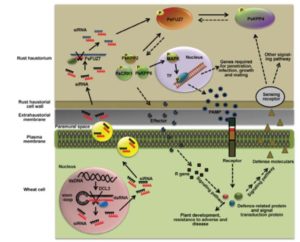 Wheat (Triticum aestivum) yields can be severely reduced by the obligate biotrophic pathogen Puccinia striiformis f. sp. tritici (Pst). Currently, approaches to manage this disease rely on cultivar resistance coupled with fungicide application. However, driven by a greater need for wheat production, the necessity for environmental protection, the constant evolution of virulence in rust fungi, and the loss of natural resistance in wheat cultivars, innovative alternative approaches to control rust disease are required. Host-induced gene silencing (HIGS) is an RNA interference (RNAi)-based process where small RNAs made in the plant silence genes of pests or pathogens that attack the plant. Numerous reports have demonstrated the efficiency of RNAi to improve control of bacteria, viruses, fungi, insects, nematodes, and parasitic weeds. The MAPK kinase gene PsFUZ7 has previously been shown to play an important role in Pst virulence by regulating hyphal morphology and development. Zhu et al. (10.1104/pp.17.01223) generated transgenic wheat lines expressing double-stranded RNA targeting PsFUZ7 transcripts of Pst. They analyzed expression of PsFUZ7 and related genes, and resistance traits of the transgenic wheat lines. Their results indicate that the expression of RNAi constructs in transgenic wheat plants
confers strong and durable resistance to Pst, along with a severe restriction of
Pst development. This efficient inhibition of disease development suggests that HIGS is a powerful strategy to engineer transgenic wheat resistant against the pathogen Pst and may prove to be a useful alternative approach to conventional breeding, or chemical treatment towards developing environmentally friendly and durable resistance in wheat and other food crops.
Wheat (Triticum aestivum) yields can be severely reduced by the obligate biotrophic pathogen Puccinia striiformis f. sp. tritici (Pst). Currently, approaches to manage this disease rely on cultivar resistance coupled with fungicide application. However, driven by a greater need for wheat production, the necessity for environmental protection, the constant evolution of virulence in rust fungi, and the loss of natural resistance in wheat cultivars, innovative alternative approaches to control rust disease are required. Host-induced gene silencing (HIGS) is an RNA interference (RNAi)-based process where small RNAs made in the plant silence genes of pests or pathogens that attack the plant. Numerous reports have demonstrated the efficiency of RNAi to improve control of bacteria, viruses, fungi, insects, nematodes, and parasitic weeds. The MAPK kinase gene PsFUZ7 has previously been shown to play an important role in Pst virulence by regulating hyphal morphology and development. Zhu et al. (10.1104/pp.17.01223) generated transgenic wheat lines expressing double-stranded RNA targeting PsFUZ7 transcripts of Pst. They analyzed expression of PsFUZ7 and related genes, and resistance traits of the transgenic wheat lines. Their results indicate that the expression of RNAi constructs in transgenic wheat plants
confers strong and durable resistance to Pst, along with a severe restriction of
Pst development. This efficient inhibition of disease development suggests that HIGS is a powerful strategy to engineer transgenic wheat resistant against the pathogen Pst and may prove to be a useful alternative approach to conventional breeding, or chemical treatment towards developing environmentally friendly and durable resistance in wheat and other food crops.


